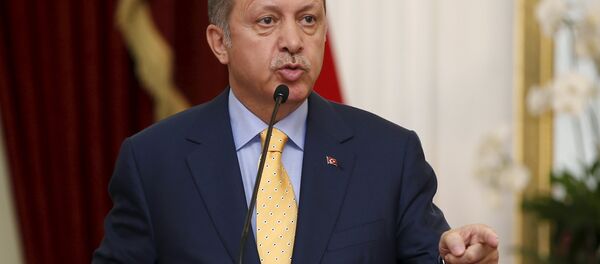The report said that "by removing necessary checks and balances, the amendments would not follow the model of a democratic presidential system based on the separation of powers, and instead would risk degeneration into an authoritarian presidential system."
It also criticized the proposals for "letting the new president exercise executive power alone, with unsupervised authority to appoint and dismiss ministers, and to appoint and dismiss all high officials on the basis of criteria determined by him or her alone, allowing the president to be a member and even the leader of his or her political party, that would give him or her undue influence over the legislature and giving the president the power to dissolve parliament on any grounds whatsoever, which is fundamentally alien to democratic presidential systems."
The Venice Commission also said the proposed changes would "further weaken the already inadequate system of judicial oversight of the executive and the independence of the judiciary."
Turkish Justice Minister Bekir Bozdag slammed the report, saying that the only purpose of the document was to "encourage people to say 'no' in the referendum."
"6)Venice Commission's Opinion shows that Commission sided with the "NO" voters in the constitutional amendments referendum." @bybekirbozdag
— Judiciary of Turkey (@JudiciaryTurkey) 14 марта 2017 г.
He added that if the Venice Commission wanted to advise Turkey and provide a positive contribution to the charter plans, it should have done so while these changes were being discussed in parliament.
"The Venice Commission's opinion on the amendments to the Constitution of TR (Turkish Referendum) is not technical but completely political," tweeted the Judiciary of Turkey.
"1)The Venice Commission's opinion on the amendments to the Constitution of TR is not technical but completely political." @bybekirbozdag
— Judiciary of Turkey (@JudiciaryTurkey) 14 марта 2017 г.
Commenting on the recently issued document, Turkish expert in constitutional law İbrahim Kaboglu told Sputnik Turkiye that the authorities in Turkey should not underestimate the document as it "contains a number of very important remarks."
"The referendum should be looked at from the two points of view," he told Sputnik.
First, he said, from the point of view of the Venice Commission. Secondly, from Turkey's point of view.
"If we look at the developments which have been going on in Turkey since October 16, when the constitutional amendments were put to parliament, it will become clear that the conclusions of the commission's report echo the point of view of a number of Turkish political analysts on the situation in the country, which the Turkish authorities prefer to dismiss and even deny its existence," he told Sputnik.
"Apart from the state of emergency, which is still in effect in the country, the Turkish authorities undertake actions which go beyond it and violate the provisions of the constitution," the expert added.
The illegality of these actions has been admitted by the country's prime minister, he said.
Ahead of the referendum, Turkish political leaders are spreading such persistent propaganda, aimed at persuading the population to vote for the constitutional amendments, that it has led to a serious crisis in relations between Turkey and Europe, he said. The Venice commission's report should not be regarded independently of the ongoing developments.
The expert also added that the Turkish authorities should pursue a more balanced policy without using aggressive rhetoric towards those who are arguing against the amendments.
"However, unfortunately, we are now witnessing the spread of rhetoric which equates those coming out against the amendments with terrorists. It is an unacceptable and very dangerous approach," he concluded.





